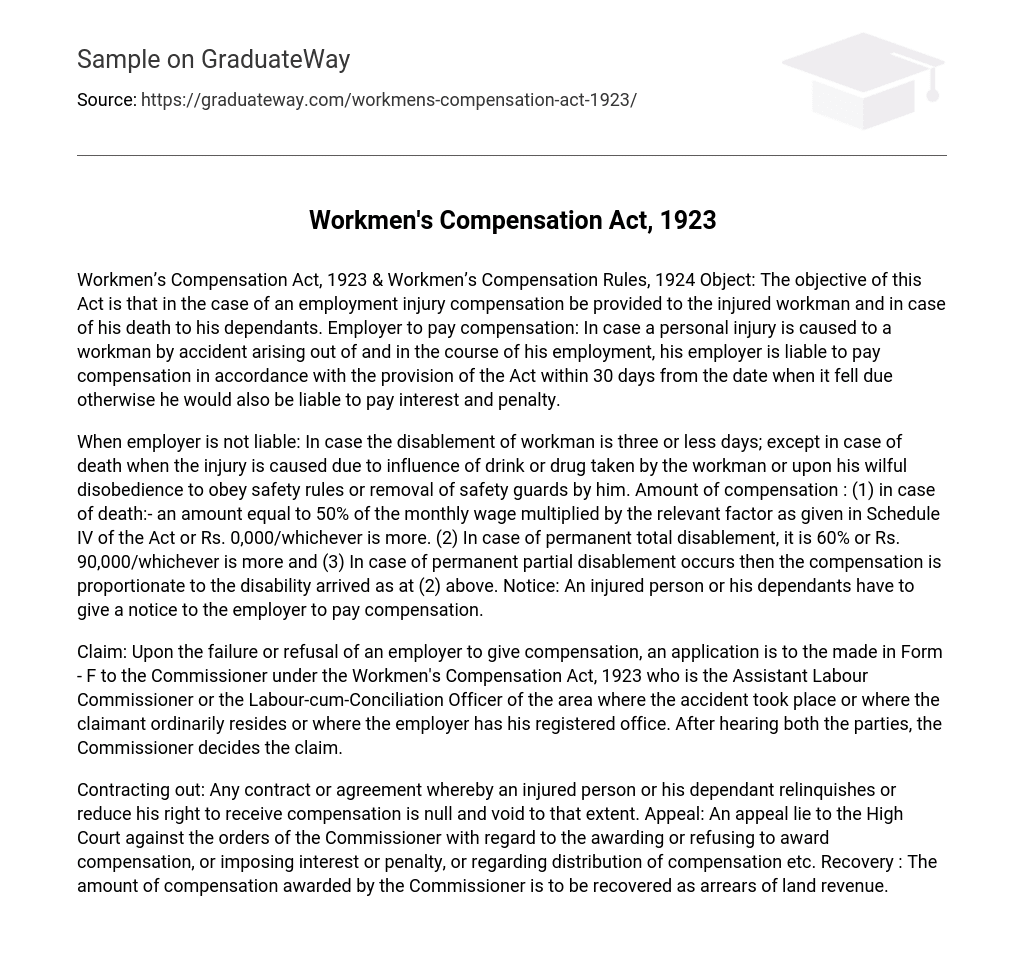Workmen’s Compensation Act, 1923 & Workmen’s Compensation Rules, 1924 Object: The objective of this Act is that in the case of an employment injury compensation be provided to the injured workman and in case of his death to his dependants. Employer to pay compensation: In case a personal injury is caused to a workman by accident arising out of and in the course of his employment, his employer is liable to pay compensation in accordance with the provision of the Act within 30 days from the date when it fell due otherwise he would also be liable to pay interest and penalty.
When employer is not liable: In case the disablement of workman is three or less days; except in case of death when the injury is caused due to influence of drink or drug taken by the workman or upon his wilful disobedience to obey safety rules or removal of safety guards by him. Amount of compensation : (1) in case of death:- an amount equal to 50% of the monthly wage multiplied by the relevant factor as given in Schedule IV of the Act or Rs. 0,000/whichever is more. (2) In case of permanent total disablement, it is 60% or Rs. 90,000/whichever is more and (3) In case of permanent partial disablement occurs then the compensation is proportionate to the disability arrived as at (2) above. Notice: An injured person or his dependants have to give a notice to the employer to pay compensation.
Claim: Upon the failure or refusal of an employer to give compensation, an application is to the made in Form – F to the Commissioner under the Workmen’s Compensation Act, 1923 who is the Assistant Labour Commissioner or the Labour-cum-Conciliation Officer of the area where the accident took place or where the claimant ordinarily resides or where the employer has his registered office. After hearing both the parties, the Commissioner decides the claim.
Contracting out: Any contract or agreement whereby an injured person or his dependant relinquishes or reduce his right to receive compensation is null and void to that extent. Appeal: An appeal lie to the High Court against the orders of the Commissioner with regard to the awarding or refusing to award compensation, or imposing interest or penalty, or regarding distribution of compensation etc. Recovery : The amount of compensation awarded by the Commissioner is to be recovered as arrears of land revenue.





